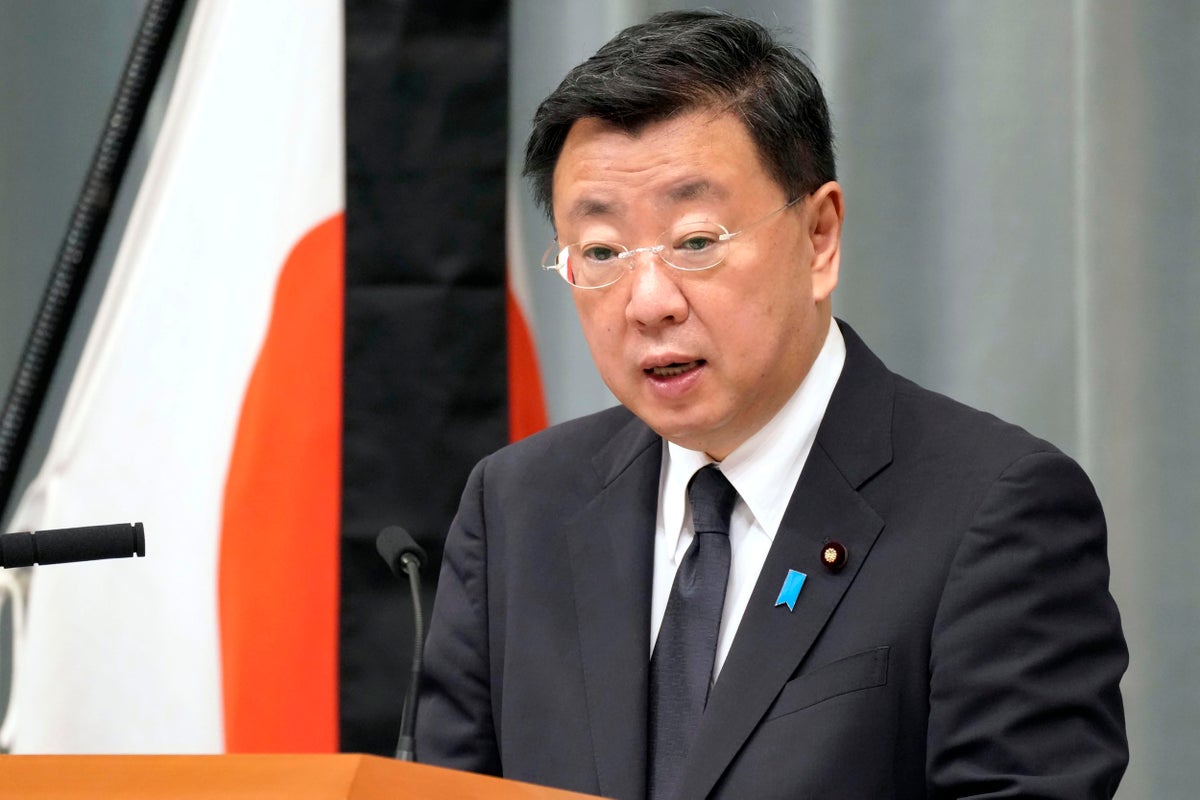
Japan protested to Russia on Tuesday over the detention of a Japanese consulate official on espionage allegations, denying the allegations and accusing Russian authorities of abusive interrogation.
The official was detained on Sept. 22 and interrogated with his eyes covered, his hands and head pressed and immobilized, Japan's Foreign Ministry said, prompting it to lodge a protest and to demand an apology.
On Monday, Russia’s Foreign Ministry notified Japan's Embassy in Moscow that the official had been declared “persona non grata,” or an undesirable person, on grounds he conducted illegal espionage activity and it ordered him to leave the country within 48 hours.
“The alleged illegal activity insisted by the Russian side is completely groundless,” Chief Cabinet Secretary Hirokazu Matsuno told reporters.
Matsuno said Japan's Vice Foreign Minister Takeo Mori summoned Russia's ambassador and strongly protested, demanding a formal apology from the Russian government and measures to prevent a recurrence.
The Russian authorities' treatment of the consulate official was “intimidating” during the interrogation, adding that such handling of consular officials violates the Vienna convention and a Japan-Russo treaty over consular affairs, Matsuno said.
“It is extremely regrettable and absolutely unacceptable,” Matsuno said.
The consular official has since been released with no health problems and is set to return to Japan on Wednesday.
The dispute is the latest example of worsening ties between the two countries over Japan’s sanctions against Russia’s invasion of Ukraine. Japan and Russia had expelled a number of diplomats, while Russia scrapped peace negotiations with Japan that includes talks on Russian-held disputed islands that Japan says the Soviets took at the end of the World War II.
Russia said Monday that it had detained a Japanese consulate official based in the eastern city of Vladivostok for soliciting “restricted” information, according to Russian news agencies.
“A Japanese diplomat was detained red-handed while receiving, in exchange for financial reward, restricted information about Russia’s cooperation with another country in the Asia-Pacific region,” the FSB, the KGB’s successor agency, was cited as saying through its press service, without specifying the third country.
The FSB identified the official as Tatsunori Motoki, accusing him of seeking out information on “the impact of Western sanctions” on the surrounding Primoriye region, according to news agencies.
The Kremlin has repeatedly referred to Japan as a “hostile” country, a designation it shares with the U.S., EU countries and their Western allies, since Tokyo joined them in slapping sanctions on Moscow after Russian troops entered Ukraine on Feb. 24.
In its latest sanctions, Japan's government on Monday banned the export of materials that may be used for chemical weapons to 21 Russian organizations, including science laboratories. The measure was approved by the Cabinet following a decision by Group of Seven foreign ministers last week.







